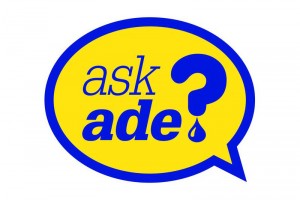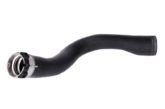
With almost 30 years’ experience in the oil and lubricants industry, Morris Lubricants’ Automotive Product Manager Adrian Hill is perfectly placed to provide his expert insight and analysis.
 Today the use of a specific oil grade for every vehicle is the norm, which makes buying, stocking and installing the correct oil a complex task. Some manufacturers have 10 products in their 5W-30 range. Does Morris Lubricants, or any other producer, have a ‘universal’ oil in its range? – IAN PATERSON
Today the use of a specific oil grade for every vehicle is the norm, which makes buying, stocking and installing the correct oil a complex task. Some manufacturers have 10 products in their 5W-30 range. Does Morris Lubricants, or any other producer, have a ‘universal’ oil in its range? – IAN PATERSON
ADE’S ANSWER: I do sympathise with the logistical problems such a high number of 5W-30 poses. But the lubricants are developed in line with the specific requirements of the OEM, and each one will have different operational challenges, with subtle component differences, metallurgies and operational nuances.
Certain OEMs may offer variable or fixed service intervals, have defined fuel economy requirements, utilise certain seal/elastomer materials, have issues with deposits/sludges or fit particularly sensitive after-treatment devices – the list goes on! To satisfy these needs, the chemistry used will vary and ill be carefully balanced to help the OEM achieve their defined engineering goals.
Rationalisation is possible, as certain lubricant formulations can satisfy more than one need. However, a truly universal product is just not possible. It’s also important to ensure that cars under OEM warranty use are topped up with a correctly approved product.
In race application lubricants, why are levels of zinc and phosphorus twice the amount compared to road production car oils? What is the advantage and could they be used in cars? – MARK HAWKES-FAULKNER
ADE: Zinc and phosphorus come from the anti-wear additive we use in the formulations and, because race engines are under a lot of stress loading, certain parts of the engine need a lot of anti-wear protection, hence higher levels of zinc and phosphorus.
In terms of the second part of your question, when you’re looking at race oils, they’re designed for very short periods of time. For instance, the oil in Formula One cars will be formulated to last no more than the race or rally car owners may change after every other event.
You can load a race car lubricant with lots of anti-wear performance because it needs it and, more importantly, the engine doesn’t have a lot of after-treatment devices on it like a road car would.
The levels of zinc and phosphorus (and sulphar) in a race lubricant would poison catalysts and block diesel particular filters, causing malfunction, limited operation and possible shut down by the engine management system.









